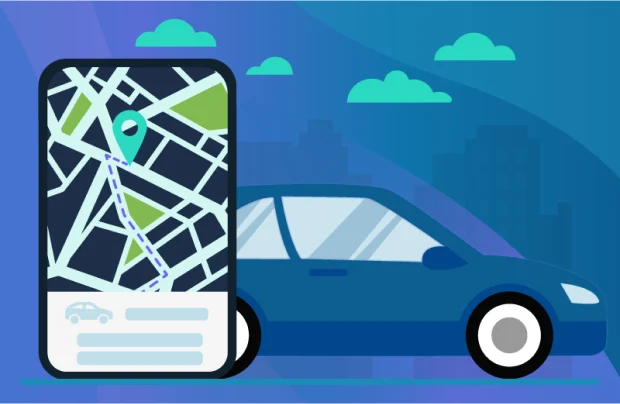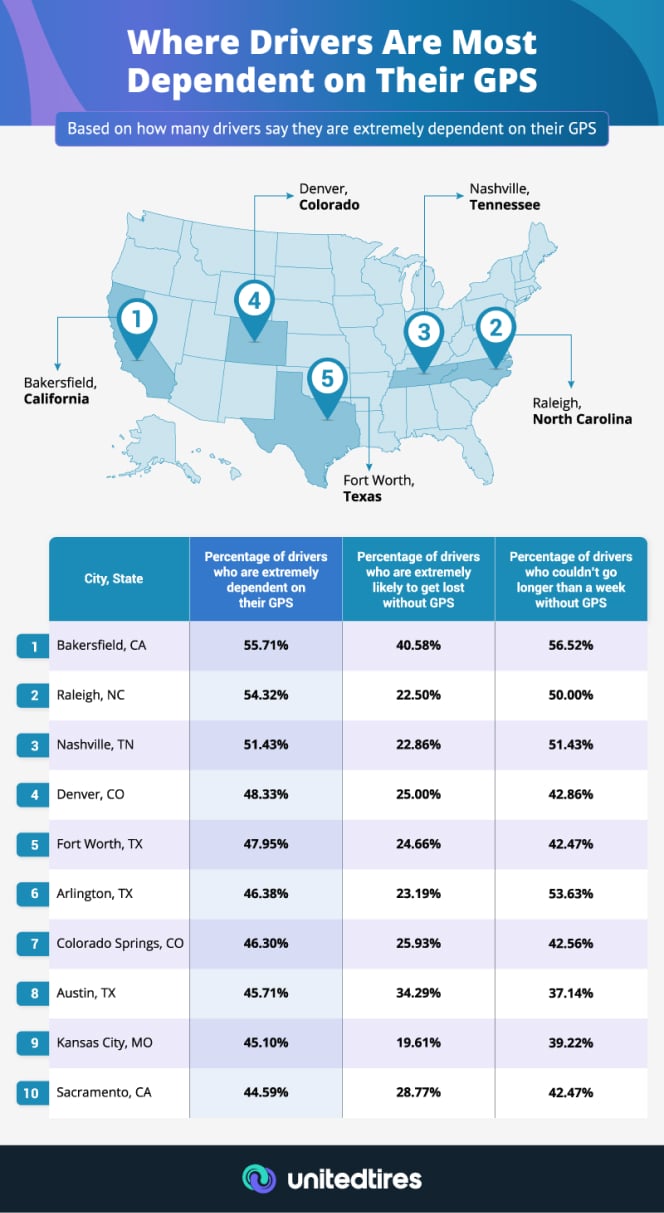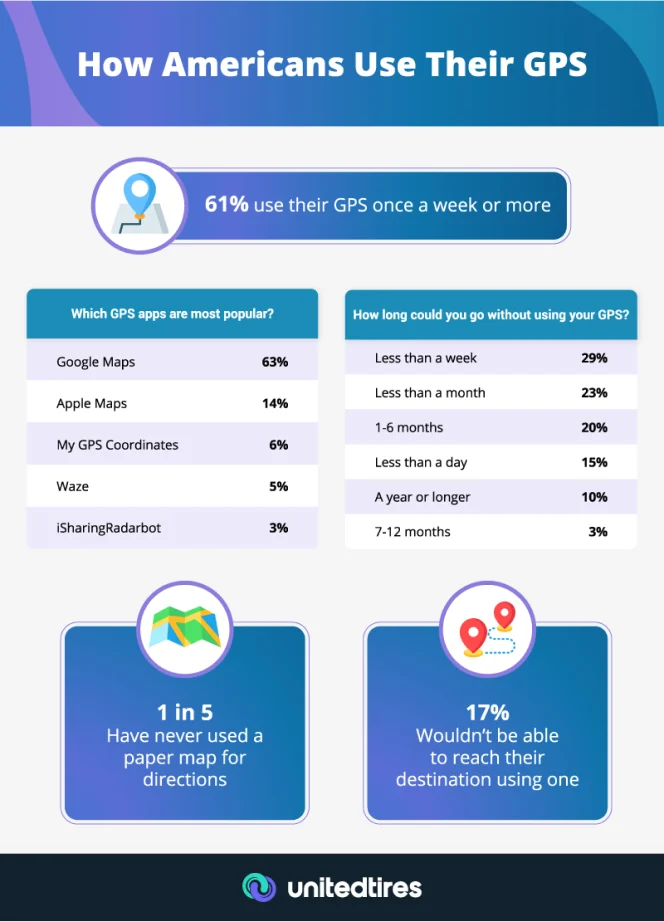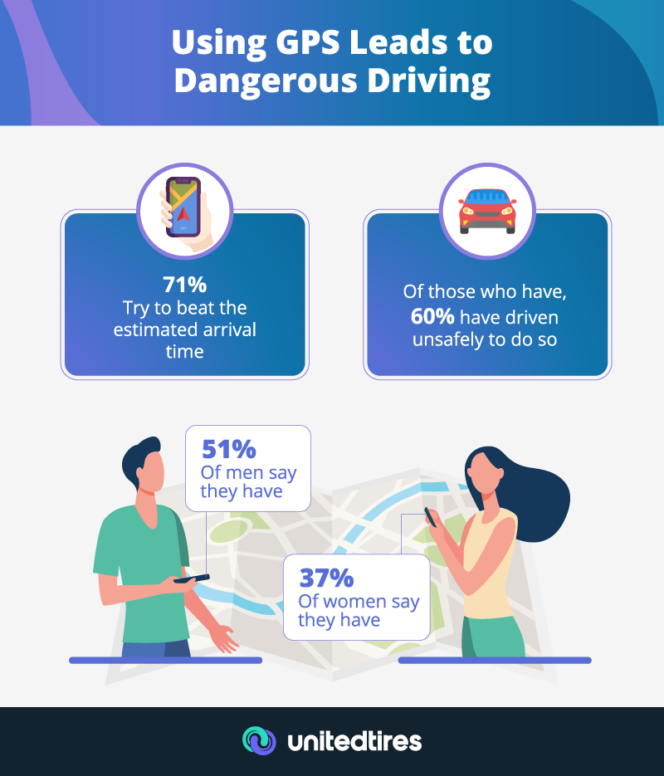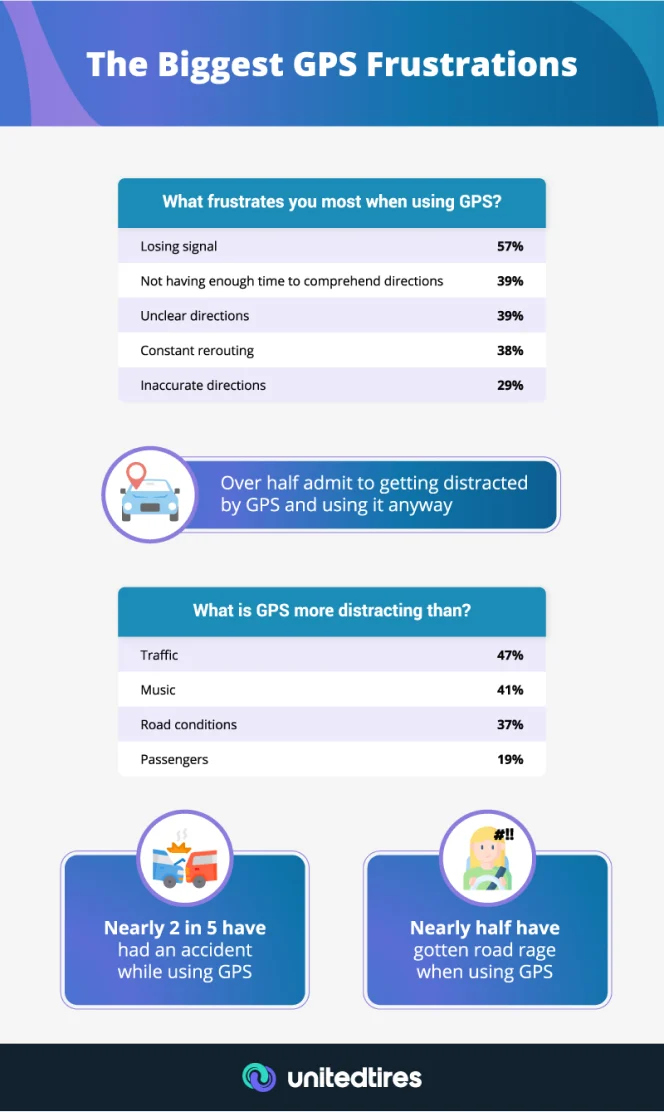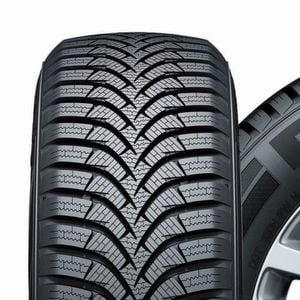Last Updated on 03.10.2024 by hrushetskyy
What’s the first thing you do when you get in your car? For many, it’s mapping out their route. Whether you’re looking to dodge traffic or simply unfamiliar with the area, a GPS is an essential tool for saving both time and effort on your journey.
Which cities most necessitate the use of GPS while traveling? And how are people using GPS services? In this article, we surveyed over 1,200 residents from the top 20 cities in the United States that feature the most cars per person to determine how much they rely on their GPS and how they use it.
Key Findings
- Drivers in Bakersfield, Raleigh, and Nashville are most dependent on their GPS when driving.
- Of those who have tried to beat their estimated arrival time, 2 in 5 have driven dangerously to do so.
- 1 in 5 have never used a paper map for directions, and 17% wouldn’t be able to find their way with one.
Where Americans Are Most Dependent on Their GPS?
The majority of our respondents need a GPS to get around. In fact, 93% said they were dependent on their GPS and 1 in 5 use it every day. This made sense since 83% of respondents said they would get lost without their GPS.
Of the top 20 cities with the most cars per person, the following five depended on GPS the most.
1. Bakersfield, California
Bakersfield boasts a potential driving population of over 280,000. With an average of 232,168 vehicles on the road, that’s over 80% of the driving population with a car. Even more remarkable, 55.71% of them are incredibly dependent on their GPS for their travel needs. In fact, 40.58% said they are extremely likely to get lost without their GPS.
Over half of Bakersfield respondents can’t go longer than a week without using their GPS. Not that it matters too much—over half admitted to getting lost multiple times a month even while using the GPS.
2. Raleigh, North Carolina
More populous than Bakersfield, Raleigh shows much of the same dependency on GPS. Just less than 325,000 vehicles are on the road, accounting for 84% of the driving population. With 85% of the workforce commuting four hours or more each week, though, the routes start to add up.
To manage that driving, 54.32% of respondents from Raleigh report that they are completely dependent on their GPS, and half can’t go longer than a week without it. Still, more than 1 in 5 (22.5%) will definitely get lost without it, and nearly 1 in 3 still get lost a few times a month even when using it.
3. Nashville, Tennessee
Nashville, TN boasts a ratio of vehicles per driving-age person of 0.87. With an estimated 473,045 vehicles on the road, Nashville’s roads are full of drivers. Like other cities, over half of the drivers depend on their GPS for all travel, and nearly 23% will get lost without using it.
Over half of drivers (52% to be exact) use their GPS at least once a week. And, like drivers of Raleigh, almost a third of drivers will still get lost a few times a month, GPS or not.
4. Denver, Colorado
Denver is a city of over 600,000 eligible drivers and 505,632 vehicles on the road. For their normal driving needs, 48.3% of eligible Denver drivers are extremely dependent on their GPS and a quarter of drivers will get lost without using one.
Like other cities, plenty of people in Denver (43%) use their GPS at least once a week. However, only 24% reported getting lost multiple times a month. Still, with various seasons calling for different seasonal tires and driving styles, having a GPS handy is a sound decision in the mountains.
5. Fort Worth, Texas
Coming in last on the list is Fort Worth. The city has an estimated 576,827 vehicles on the road, and of drivers, 47.95% are extremely dependent on their GPS. It may seem like a lot, but it’s actually one of the two cities in the top five where less than half of drivers are dependent on GPS (along with Denver). Like Denver drivers before them, more than 2 in 5 Fort Worth drivers can’t make it a week without using their GPS.
How Americans Use Their GPS
Today, the chances of seeing a paper map are slim. One in 5 people said they’ve never used a paper map for navigating. Plus, they wouldn’t be able to use a map to reach their destination if they had to.
With GPS usage so prevalent in drivers across the country, we wanted to know exactly how they used such systems. On average, just over 60% of American drivers use a GPS service at least once a week. While there are several GPS options to use, Google Maps is the clear map leader. About 63% of respondents prefer Google’s platform to others. Apple Maps, the closest competitor, is used by only 14% of respondents.
Regardless of the provider, most people are trying to outsmart their GPS service as they drive. Over 70% reported that they try to beat their estimated arrival times. However, only 43% are routinely successful at beating the computer. Even then, 66% of drivers are only saving 30 minutes or less.
As drivers in most areas can attest, using a GPS doesn’t lead to greater safety. In fact, 2 in 5 respondents admitted to reckless driving to beat their GPS. Men are the more likely culprit, with 51% of male respondents (versus 37% of female respondents) owning up to their poor driving choices.
The Biggest Problems With GPS
Almost half of the country is dependent on GPS. Many can’t go a week without using it to get to a destination. However, that doesn’t mean drivers always love the tech. In fact, most respondents still admit to getting frustrated with GPS technology.
About 57% of respondents claimed that lost signals are the most annoying aspects of GPS. Unclear directions and directions being read too fast were the next most common, claimed by 39% each. Vague directions are a common occurrence. Approximately 70% of drivers have gotten lost even with a GPS because of unclear or confusing directions. What’s more, this happens multiple times a month for 40% of drivers!
The biggest problem with this fact isn’t the inconvenience of getting lost. Instead, it is the increased distracted and dangerous driving that arises from confusing GPS directions. Even without unclear directions, over half of the drivers say they continue to use their GPS even if it distracts them. Many respondents even claimed that GPS is more distracting than traffic or music.
Yet 44% of respondents admit to programming the GPS as they’re driving. And 2 in 5 respondents have been in an accident while using their GPS.
In addition to being a distraction, a GPS can also cause frustration. 46% of respondents have experienced road rage while using a GPS. 53% of said respondents were men, and 40% were women.
Whether you love or hate your GPS, always remember to stay safe while using them. Program your trips before you drive. If you have to update a direction, find a safe place to pull over to. Lastly, don’t get mad at other drivers over a GPS incident—you don’t want to become a statistic.
Methodology: Between January 25 and January 31, 2022, we surveyed 1,255 drivers in 20 of the cities with the most cars per person according to data from the U.S. Census Bureau’s 2019 American Community Survey and CoPilot:
- Albuquerque, New Mexico
- Arlington, Texas
- Aurora, Colorado
- Austin, Texas
- Bakersfield, California
- Charlotte, North Carolina
- Colorado Springs, Colorado
- Denver, Colorado
- Fort Worth, Texas
- Kansas City, Missouri
- Louisville, Kentucky
- Mesa, Arizona
- Nashville, Tennessee
- Oklahoma City, Oklahoma
- Omaha, Nebraska
- Raleigh, North Carolina
- Sacramento, California
- Tulsa, Oklahoma
- Virginia Beach, Virginia
- Wichita, Kansas
Of respondents, 52% identify as male, 48% as female, and the average age was 37. A majority (99%) use driving as their primary mode of transportation, and 97% own their car; 15% have been driving for 5 years or less; 34% for 6-10 years; 23% for 11-19 years; and 28% for 20 years or longer. Most have lived in their city for longer than 5 years (53%); 27% for 1-3 years; 17% for 4-5 years; and 3% for less than a year.

